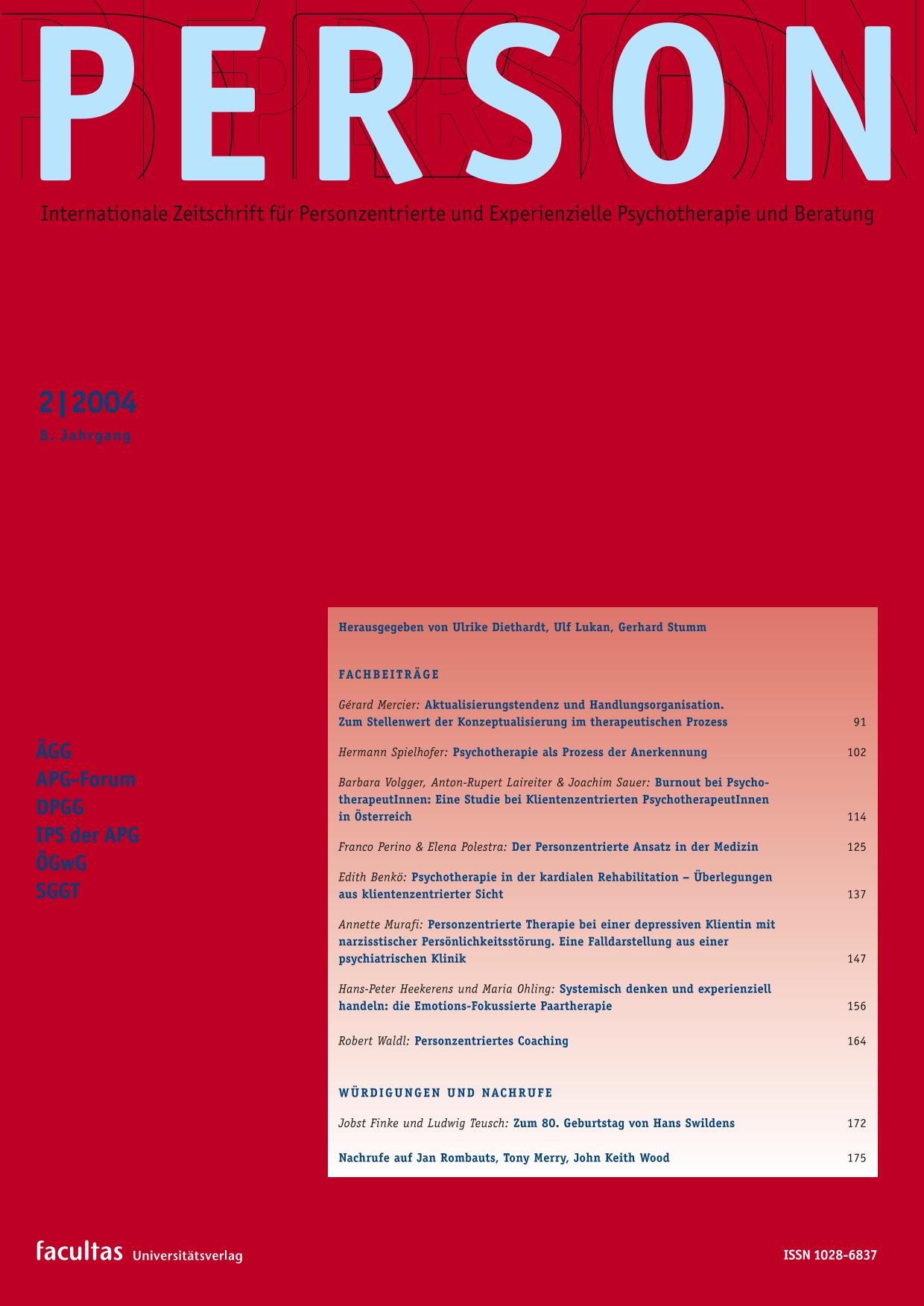Psychotherapie als Prozess der Anerkennung
Main Article Content
Article Sidebar
Abstract
Psychotherapy as a process of acknowledgement. To be effective, psychotherapy must mutually acknowledge therapist and client, and consequently acknowledge and re-establish the client’s own will. For Rogers, the attitudes of the therapist and the relationship he or she offers were always essential for a positive atmosphere in therapy. For the author, however, the relationship offered by the client and the roles he or she attributes to the therapist are also important aspects of therapy. In the context of the common process of transference and counter-transference we create an atmosphere, a space of interaction in which the denied organismic experiencing can “flow in” in the shape of unconsciously staged interactions and masked messages, almost “in between the lines”. In such a way the dyad is interrupted by a third element. The integration in the common level of meaning and understanding, in the symbolic order of the common language, gives rise to a triadic structure, which makes it possible to dissolve the affective entanglement in the dyad. By means of symbolization of the denied organismic experiencing, by means of the (re-)introduction of common communication, language obtains a creative power for the shaping of our experiencing and for determining its content and our needs as well as our emotional assessments. The semantics and syntax of our language, which are socially determined, can be used to uncover or bury the truth. Therefore it is the task of psychotherapy to examine critically the terms and the linguistic signs with regard to their uncovering and emancipatory potential.
How to Cite
Downloads
Article Details
Denial, acknowledgement, empathy, interaction, construction, organismic self, positive regard, self-concept, symbolization, therapeutic relationship, transference

